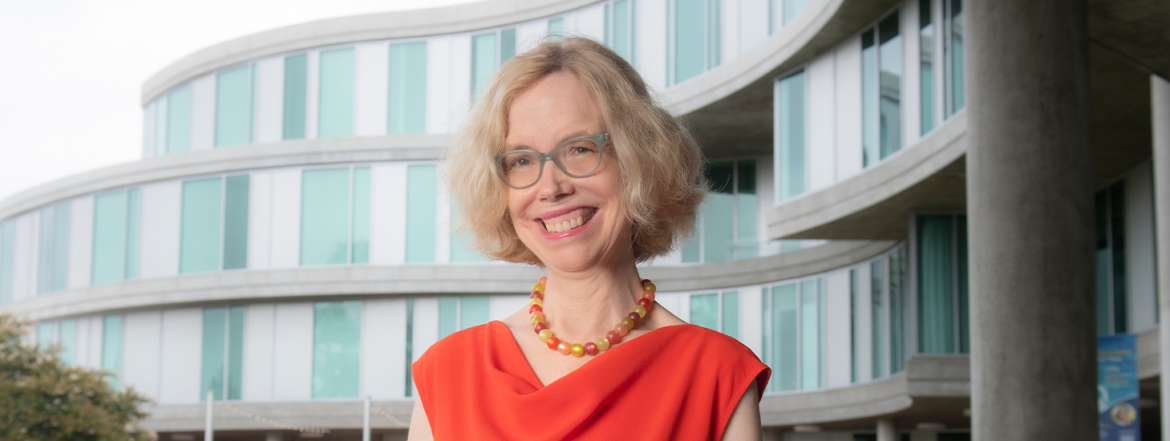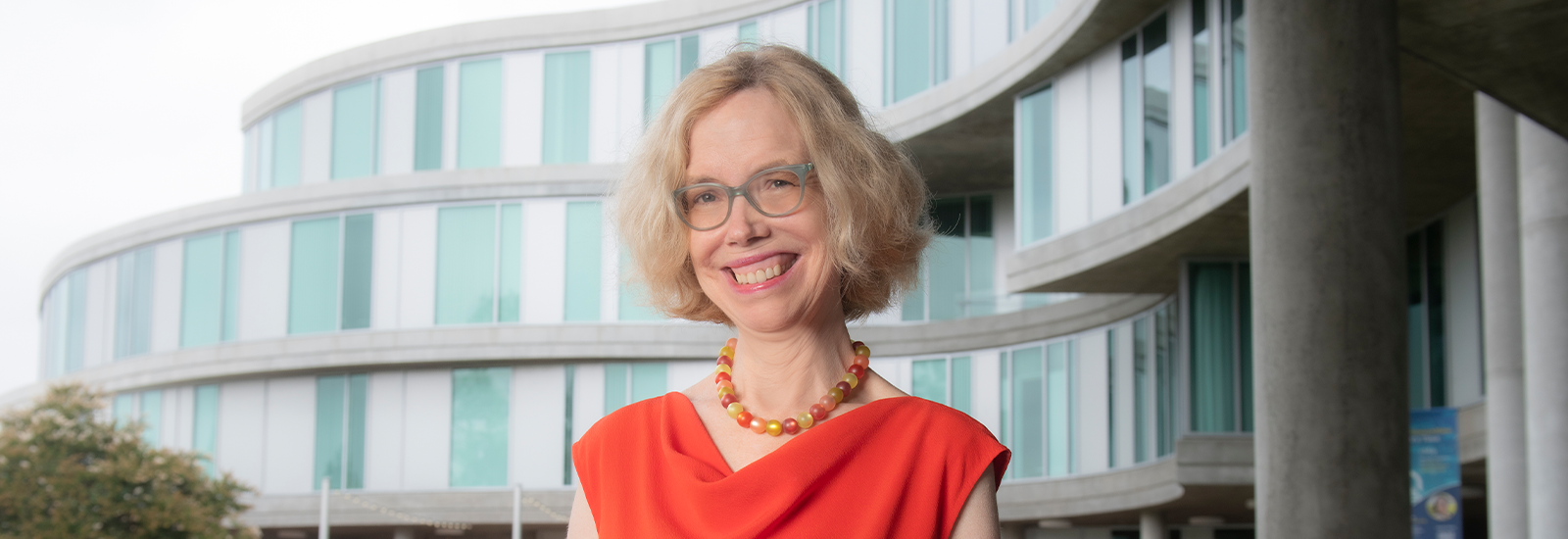Humanities Networking, with Interim Director Julia Lupton
In my thirty plus years as an English professor, administrator, and program director, I discovered a passion for humanities research development. For me, that means participating in intentional grantmaking and grant-writing, entertaining new forms of impact and engagement, and welcoming as many people as possible into humanities research. And that passion has been shaped by my many years working with the UCHRI and the Humanities Network.
I arrived at UC Irvine in 1989, just two years after the UCHRI was founded. A UC President’s Fellowship in 1992 helped me complete my tenure book. Later I led a faculty working group, w/Shakespeare, that yielded lasting partnerships with theaters, campuses, and communities. I also participated in HRI’s Changing Conceptions of Work and Humanists at Work initiatives. Those projects deeply influenced my five years as Associate Dean for Research and Director of the Humanities Commons (now the Humanities Center) at UCI. I also had many opportunities to work with my counterparts in the Humanities Network, and connecting with the campus centers has been a hugely rewarding part of my first months at the UCHRI. What I am starting to call “humanities networking” is essential to the work of the UCHRI.
The UCHRI theme for 2022-23 is Refuge and Its Refusals. I wanted to use this transitional year to consider the humanities, including the UCHRI, within the framework of hospitality. How have the humanities traditionally strived to create spaces for reflection and research? How do historical inquiry and open-ended interpretation contribute to the survival and flourishing of a culture or society? If public universities don’t invest in opportunities for sustained reflection, who or what will? And what are the real costs to thinking, teaching, and knowledge when critical and creative work is done in a manner that excludes or exploits the students, scholars, and audiences with the most to contribute?
In addition to considering refuge as a humanistic paradigm, I was also inspired by the work being done on many campuses around refugee scholars and refugee scholarship. The Critical Refugee Studies Collective began as a UCHRI Residential Research Group in 2015 and continues to model what collaborative research can accomplish across the UC. Many of our campuses participate in the Scholars at Risk Network, which finds temporary teaching positions for displaced scholars. On February 16-17, 2023, UC faculty, hosted scholars, and their allies will gather to discuss the challenges facing displaced scholars on their campuses and to share research paradigms and insights around the theme of refuge at risk. We are also seeking to provide networking, professionalization, and research exchange opportunities for hosted scholars. I am pleased to be co-organizing this gathering with Jane O. Newman (UCI) and Ignacio López-Calvo (UC Merced), from whom I have already learned so much.
When I try to identify the conversations that bring people together across fields, I notice again and again that critical theory continues to spark new connections, whether the topic is abolition pedagogies, critical machine learning studies, post-socialist studies, or early modern ecologies. Critical theory builds ideational infrastructure for the greater humanities, from literature, film studies, and gender and ethnic studies to political science, anthropology, and public health as well as art, architecture, and design. Critical theory, especially in its experimental modes (as autotheory, compositional and computational practice, critical design thinking, speculative fiction, decolonial and nonbinary transvaluation, etc.) often leads to new partnerships among academics, artists, and civic actors. We are planning a spring gathering at UC Berkeley to discuss future collaboration on the model of UCHRI’s Seminar in Experimental Critical Theory.
I want to thank David Theo Goldberg, the UCHRI staff, and the Humanities Network for all they’ve done to create a vibrant humanities ecology for the University of California. As Interim Director, my main task is listening and learning. I am striving to practice that ethos now as I step into my new role with passion and commitment, but also with a sense of real humility. I’d love to hear from you.


